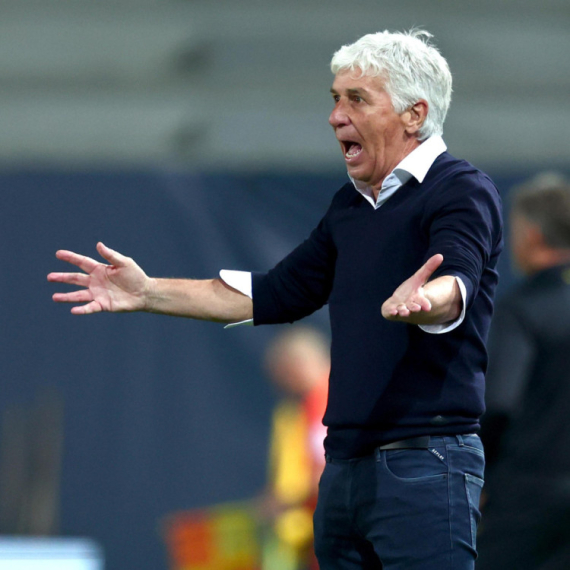WTO membership "does not imply introduction of GMOs"
Serbia's membership in the World Trade Organization "does not necessarily mean that genetically modified organisms (GMO) will be introduced in the country".
Tuesday, 26.03.2013.
15:59

BELGRADE Serbia's membership in the World Trade Organization "does not necessarily mean that genetically modified organisms (GMO) will be introduced in the country". Rather - it would send "a positive signal to investors, guarantees stability and allows access to markets of 159 WTO member countries," Minister of Foreign and Internal Trade Rasim Ljajic said on Tuesday. WTO membership "does not imply introduction of GMOs" "Talks on joining the WTO are not talks on its rules, since they have already been made and we can either accept them or not," Ljajic said, adding that Serbia cannot join the EU without joining the WTO. The thesis that joining the WTO leads to introduction of GMO is not just ignorance, but also someone's interest for Serbia to stay isolated, Ljajic said in his opening remarks at a conference on exchange of experience in the process of WTO accession. "We will not allow GMO in Serbia. We want strict control," Ljajic said at the convention held at the Serbian Chamber of Commerce, and added it would not be good if Serbia was the only WTO non-member country in Europe, apart from Belarus. Nicolas Imboden, Executive Director of IDEAS Centre, said that, according to WTO's rules, a country can ban GMO only if there is scientific evidence that GMO is bad, adding that there is no such evidence for now. Imboden pointed out that if a WTO member country asks another country, which is undergoing the accession process, to change GMO regulations, the latter does not have to accept it, but it will not become a member until all WTO member countries agree with that. You cannot impose a ban, but you can make imports of such products difficult, complicated and unprofitable through a complex procedure, by insisting that GMO products be clearly labeled, he pointed out. He said that there is a ban on GMO products in Switzerland, where such products cannot be found in stores precisely because people do not like them and do not buy them. Unlike most of the countries, the U.S. believes that GMO is the future of their agriculture, Imboden noted. Today, the WTO has 150 members, whereas 25 countries are undergoing the accession process taking place according to the established rules - within multilateral and bilateral negotiations. Serbia has so far signed bilateral protocols on market access for goods and services with 11 countries and the EU. Bilateral talks with the Dominican Republic have been completed, while the ones with the U.S., Brazil, India and Ukraine are still underway. Rasim Ljajic (Tanjug) Tanjug
WTO membership "does not imply introduction of GMOs"
"Talks on joining the WTO are not talks on its rules, since they have already been made and we can either accept them or not," Ljajić said, adding that Serbia cannot join the EU without joining the WTO.The thesis that joining the WTO leads to introduction of GMO is not just ignorance, but also someone's interest for Serbia to stay isolated, Ljajić said in his opening remarks at a conference on exchange of experience in the process of WTO accession.
"We will not allow GMO in Serbia. We want strict control," Ljajić said at the convention held at the Serbian Chamber of Commerce, and added it would not be good if Serbia was the only WTO non-member country in Europe, apart from Belarus.
Nicolas Imboden, Executive Director of IDEAS Centre, said that, according to WTO's rules, a country can ban GMO only if there is scientific evidence that GMO is bad, adding that there is no such evidence for now.
Imboden pointed out that if a WTO member country asks another country, which is undergoing the accession process, to change GMO regulations, the latter does not have to accept it, but it will not become a member until all WTO member countries agree with that.
You cannot impose a ban, but you can make imports of such products difficult, complicated and unprofitable through a complex procedure, by insisting that GMO products be clearly labeled, he pointed out.
He said that there is a ban on GMO products in Switzerland, where such products cannot be found in stores precisely because people do not like them and do not buy them.
Unlike most of the countries, the U.S. believes that GMO is the future of their agriculture, Imboden noted.
Today, the WTO has 150 members, whereas 25 countries are undergoing the accession process taking place according to the established rules - within multilateral and bilateral negotiations.
Serbia has so far signed bilateral protocols on market access for goods and services with 11 countries and the EU. Bilateral talks with the Dominican Republic have been completed, while the ones with the U.S., Brazil, India and Ukraine are still underway.



























































Komentari 3
Pogledaj komentare